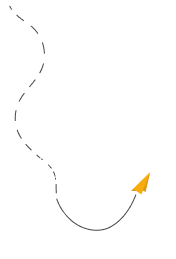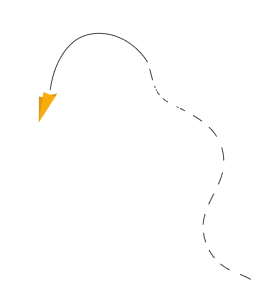Developing Your Recovery Journey with a Psychosocial Recovery Coach

At a glance:

● Individualised Recovery Plans: Coaches work with you to create tailored recovery strategies that reflect your personal goals and aspirations.· Participants can choose coaches with personal mental health experience.
● Empowering Independence: Recovery coaches help build your skills, encourage social and economic participation, and provide the support you need to take control of your life.
● Ongoing, Holistic Support: A psychosocial recovery coach's role extends beyond just coordinating services—they are deeply invested in your long-term well-being.
The National Disability Insurance Scheme (NDIS) is continually improving the experience and outcomes of participants living with psychosocial disabilities. The National Disability Insurance Agency (NDIA) introduced the Psychosocial Disability Recovery-Oriented Framework (Recovery Framework) in December 2021.
The Recovery Framework, focuses on the promotion and empowerment of participants. It does so through a recovery-oriented practice that ensures better access to individualised services and resources supportive of recovery from mental illness. In relation to its commitment, NDIS participants can access community hubs and resources that offer helpful information to various communities, families, and carers.
This includes:
● First Nations
● CALD (Culturally and Linguistically Diverse),
● LGBTIQA+ communities, as well as those in remote areas.
What is a Psychosocial Recovery Coach?
A Psychosocial Recovery Coach works closely with individuals with psychosocial disabilities to help them regain independence, achieve personal goals, and better manage the day-to-day challenges of living. They are funded by the National Disability Insurance Scheme (NDIS). They are specifically trained to support such individuals.
These recovery coaches are different to the NDIS support as most of them have lived such disabilities. As such they can better relate to their clients on a deeper and more empathetic level. This makes them highly effective to offer both professional and compassionate support.
The Role of a Psychosocial Recovery Coach
Psychosocial recovery coaches are more then service coordinators. As part of their comprehensive support, they address their client’s individual needs and also provide support in emotional and social aspects of recovery. Here’s how they help:
Understanding You: A recovery coach puts in efforts to know you personally. They take their time to understand your challenges, your strengths, and your aspirations. Whether it’s through face-to-face meetings or virtual discussions, they’ll take the time to understand the key aspects of your life.
Collaborative Goal Setting: Recovery coaches believe in a collaborative approach. They work with you to define your personal goals. The goals can be improving your mental health; increasing social participation, or gaining more independence. They’ll support you in setting realistic and do-able actions to achieve those goals.
Creating a Personal Recovery Plan: Your recovery coach will help you develop a personalised recovery plan. This plan is tailored to your identified needs and goals. They refer you to specific services, whether that be therapies, social groups, or educational programs, depending on what will best serve you on your recovery journey.
Building Your Skills: This is much more than coordination of services; the recovery coach is committed to supporting you acquire skills required for living an independent life. From learning self-advocacy to developing coping strategies, they serve to help you become resilient and gaining enduring success.
The Collaborative Approach to Recovery
Recovery requires collaboration, it cannot be achieved in solitary. At Clear Path, we recognise that the best recovery experiences includes a team around the person recovering: a network comprising family, friends, and other professionals. A recovery coach helps you build and maintain this network, so that everyone is on the same page and working toward the same outcome.
Engaging Your Support Network
Recovery coaches understand that it takes a village. They work with your support network-which can include family and friends, clinical professionals, or even peer groups. This is done to ensure that your recovery plan includes your needs and also the resources and supports you can access via the broader community.
Empowering You Towards Recovery
One of the major philosophies in psychosocial recovery coaching include empowerment. As part of the process, a recovery coach encourages individual self-engagement in your personal recovery. They achieve this by making informed decisions, building your self-advocacy capacity, and owning your NDIS plan. The guidance helps and the tools provided by recovery coaches, assists individuals in becoming confident and advocating for their own well being.
Building Independence and Skills
Recovery isn’t just about feeling better—it’s about living better. As such psychosocial recovery coaches place a strong emphasis on enabling participating individuals to be independent and fostering their participation in social and economic activities. This approach is designed to help such individuals to regain control over their life by developing practical skills that improve their quality of life.
Developing Daily Living Skills
Recovery coaches can work with you to develop essential life skills. This includes helping you better manage your finances and creating routines that support your mental health, among others. They’ll help you learn how to navigate the challenges of daily living so that you can feel more in control of your life.
Encouraging Social Participation
Mental health issues can make withdraw from society and feel isolated. Your recovery coach will support you in reconnecting with your community and fostering meaningful relationships. This is typically done through means like joining social groups, a hobby participation, or by just meeting new people. Through these and other social participation encouraging activities, they can help you in discovering ways to increase your level of social participation.
Supporting Economic Participation
Recovery for most people means acquiring the skills and self-confidence to go back to work or school. Recovery coaches assist you in this endeavour as well. They can offer support for job placement, training programs placement, and finding other ways and opportunities that may help in increasing your economic participation.
How Recovery Coaches Support Your NDIS Plan
A key responsibility of psychosocial recovery coaches is helping you understand and walk through your NDIS plan. This can often be a complex and confusing process. But as your recovery coach, they simplify the workings of NDIS for you and make it sure that you making the most of your plan and its funding.
Monitoring Your NDIS Plan
Your recovery coach will regularly review your NDIS plan to ensure that your services fit within your budget and that you are making progress towards your goals. If adjustments need to be made, your coach will help you advocate for those changes, ensuring your plan remains aligned with your evolving needs.
Preparing for NDIS Reviews
NDIS plan reviews can feel intimidating, but your recovery coach will help ease this process. They’ll assist you in preparing for these reviews by assessing what has worked well in your plan and what needs to be adjusted. With their support, you’ll be well-equipped to present your progress and advocate for continued or additional services.
A Holistic Approach to Your Well-Being
At Clear Path NDIS, we understand that recovery is not just about managing symptoms—it’s about fostering a meaningful, fulfilling life. That’s why our psychosocial recovery coaches take a holistic approach to your well-being. From offering emotional support during tough times to celebrating your successes, they are with you every step of the way.
Emotional Support
Life with a psychosocial disability can sometimes feel overwhelming, but you don’t have to face it alone. Your recovery coach is there to provide emotional support, offering a listening ear when you need it most. They can even accompany you to appointments or meetings, giving reassurance and helping you feel more comfortable.
Celebrating Your Wins
Recovery is a journey filled with challenges, but it’s also filled with successes—both big and small. Your recovery coach will celebrate these wins with you, offering encouragement and motivation as you continue to move forward. Their goal is to ensure you always feel supported, no matter where you are in your journey.
Why Choose Clear Path for Your Psychosocial Recovery Coaching?
Here at Clear Path, we are offer individualised and customer-led support. Our psychosocial recovery coaches have received mental health and most importantly, are genuinely enthusiastic about guiding you to set and achieve your personal goals. Many of the coaches have lived experience that enables them to offer a level of understanding and empathy invaluable in the recovery process.
We are not just service providers. Our recovery coaches are dedicated partners in your journey to recovery. They go above and beyond to ensure that you feel empowered, supported, and confident as you work toward living a full and happening life.
Whether you’re looking to regain independence, build new skills, or simply have someone in your corner, a psychosocial recovery coach can make all the difference.
Reach out today to learn more about how our psychosocial recovery coaches can help you achieve your goals and live a life full of purpose and meaning.
Discover More Insights Here
Explore our collection of informative articles.




